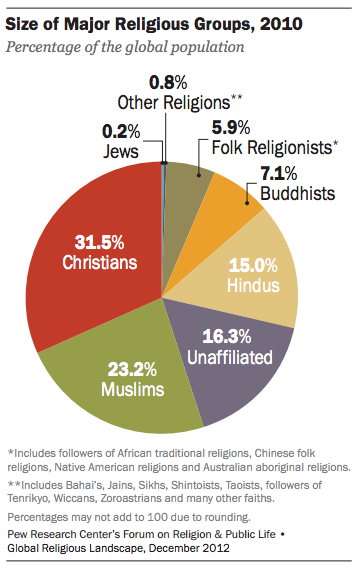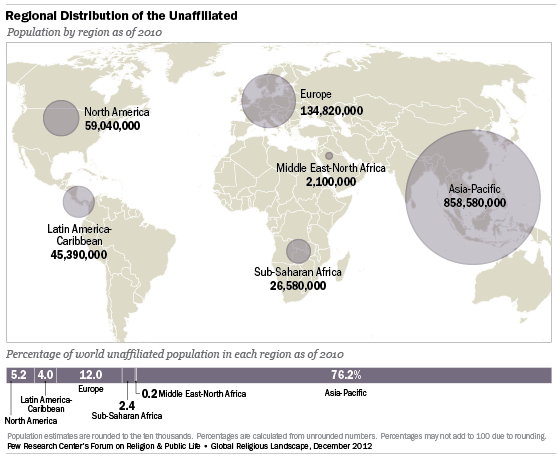A new study (PDF) out today by the Pew Research Center’s Forum on Religion & Public Life looks at numbers from 2010 and finds that 16.3% of the global population (approximately 1,126,500,000 people) have no religious affiliation:

Considering how this study analyzes 2,500 different sources of data from 232 countries, it’s about as rigorous as a study can get. Keep in mind that since it relied on self-identification of your religious group, there may still be a large percentage of people who called themselves, say, Catholic, without actually believing any of the doctrine. In other words, the “1-in-6-are-non-religious” headline is very likely an underestimate.
Still, the 1-in-6 number is the big takeaway from the study:
“Something that may surprise a lot of people,” said Conrad Hackett, a primary researcher on the report, “is that the third-largest religious group, after Christians and Muslims, is the religiously unaffiliated. There may have been some guesses floating out there before, but this is the first time there are numbers based on survey data analyzed in a rigorous and scientific way.”
Where do the Nones live? According to “The Global Religious Landscape,” as the study is called, most of us live, not surprisingly, in Asia and the Pacific (mostly China):

In fact, the Unaffiliated constitute the majority of the population in six countries: the Czech Republic (76%), North Korea (71%), Estonia (60%), Japan (57%), Hong Kong (56%), and China (52%).
In the U.S., the number (circa 2010) is around 16.4%, though more recent Pew studies put the percentage a little higher, closer to 20%.
Though the U.S. only has about 4.5% of the global unaffiliated population, that still amounts to 50,980,000 people. Imagine how much political clout we could have if even a fraction of that number decided to advocate for church/state separation and socially liberal policies…


It’s Moving Day for the Friendly ..."
It’s Moving Day for the Friendly ..."
It’s Moving Day for the Friendly ..."
It’s Moving Day for the Friendly ..."